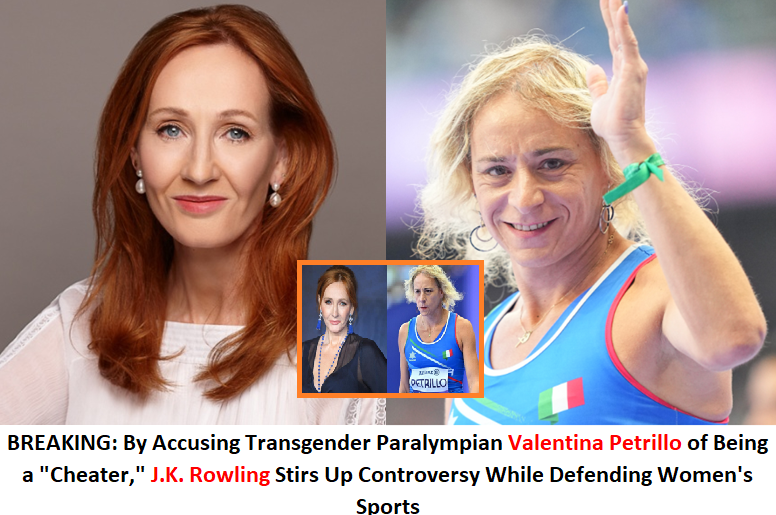In a move that has sparked heated debate, author J.K. Rowling has publicly accused Valentina Petrillo, a transgender Paralympian, of being a “cheater” for competing in women’s sports. The controversy has ignited a passionate discussion on the intersection of gender identity, fairness in athletics, and the definition of womanhood.

Rowling, known for her role in creating the “Harry Potter” series and her outspoken views on gender, has long been a polarizing figure when it comes to issues surrounding transgender rights. Her latest comments, aimed at Petrillo, a celebrated Italian athlete who transitioned from male to female, have only deepened divisions between transgender activists and those who advocate for protecting the integrity of women’s sports.
Petrillo, who made history as the first transgender athlete to compete in the Paralympic Games, has garnered widespread admiration for her athletic achievements. However, Rowling’s accusation that Petrillo’s participation in women’s events amounts to cheating has sparked outrage. Rowling’s stance is grounded in her belief that the inclusion of transgender women in women’s sports creates an unfair advantage, a position she has reiterated in her writings and public statements over the years.
Rowling’s remarks have raised serious concerns about the treatment of transgender athletes in professional sports. Supporters of transgender rights argue that such rhetoric is harmful and excludes an already marginalized group. They point out that Petrillo, like other transgender athletes, must meet rigorous medical and hormonal requirements in order to compete, leveling the playing field to some degree.
On the other hand, many who share Rowling’s views argue that even with these measures in place, biological differences between cisgender and transgender women can lead to unfair advantages. This, they believe, undermines the principle of fairness that is supposed to govern competition in women’s sports.
This debate is not new. The participation of transgender athletes in women’s sports has been a contentious issue for several years, with governing bodies like the International Olympic Committee (IOC) attempting to navigate the balance between inclusivity and fairness. However, Rowling’s comments, with her large platform and influence, have once again thrust the issue into the spotlight, intensifying the divide between those who advocate for transgender inclusion and those who argue for stricter regulations to preserve fair competition.
As the controversy unfolds, it seems clear that this debate will not be resolved easily. While many sports organizations are trying to implement policies that take into account both inclusion and fairness, the debate continues to reflect broader cultural divisions over gender identity, the rights of transgender individuals, and the meaning of fairness in competitive environments.
The accusations by Rowling against Petrillo are not just about one athlete; they are emblematic of the larger cultural clash over transgender rights. The conversation surrounding women’s sports is evolving, and as it does, the voices of transgender athletes and their advocates must continue to be heard, as must those who are concerned about the fairness of competition. Whether one agrees with Rowling or not, her comments underscore the deep societal challenges that lie ahead in reconciling these conflicting viewpoints.
The outcome of this debate could have lasting implications for both transgender athletes and the future of women’s sports. As the world grapples with how to balance inclusion, fairness, and equality, the voices of athletes like Valentina Petrillo remain central to the discussion.
Leave a Reply